The Blade 18 is Razer's largest and most powerful laptop yet. It's got a big, gorgeous 240Hz display, a slick unibody frame and practically every port you might need. It can also be configured with the fastest silicon you can get on a laptop today, including an Intel Core i9 CPU and an NVIDIA RTX 4090 GPU. There's just one problem: a fully loaded config costs $5,000.
To put that into perspective, that’s 10 times more expensive than the average price of a new laptop or tablet in the US, which is around $495 according to Indexbox. That basically makes the Blade 18 the Rolls Royce of gaming notebooks. Suffice it to say, unless you’re the offspring of an oil baron, you’re probably not going to buy one. So in an attempt to figure out who the Blade 18 is really for, I asked Razer to send over a base model of the laptop, which goes for a slightly more affordable price of $2,900 to see how much you're really getting for all that money.
Razer Blade 18
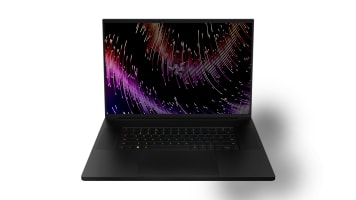
Pros
- 240Hz display
- Premium aluminum chassis
- Supports top-notch components
- Great port selection
Cons
- Extremely expensive
- Very short battery life
- Big
- No additional display options
Design and display
If you can look past its price, there's very little dislike about the Blade 18's design. Razer's aluminum body is super sturdy, with almost no flex on its lid and deck. Its keyboard also feels great and comes with per-key RGB lighting, though some may be a bit dismayed that Razer couldn't find room for a numpad even on a laptop this big. And thanks to support for tons of ports including an HDMI 2.1 jack, Ethernet, a full-size SD card reader and multiple USB Type-A and Type-C connectors, you'll never have to worry about carrying a dongle or dock around — which is a good thing because at 6.8 pounds the Blade 18 is heavy enough on its own.
While it's not that much larger than the Blade 17, Razer’s biggest laptop ever definitely doesn’t fit in my normal messenger bag, and it damn near bursts the seams on my everyday backpack too. So if I want to carry it around (not that I really want to), I have to break out my big travel backpack, which is probably for the best because its padded straps are kind of a must if you plan on carrying around the Blade 18 and its 1.7-pound power brick for any length of time. That said, for a desktop replacement, actually using the Blade 18 on your lap isn't as awkward as you might imagine. Despite its size, the notebook is balanced well and it tends to keep thermals in check during regular use, though if you're gaming you're still going to want to find a table or desk.
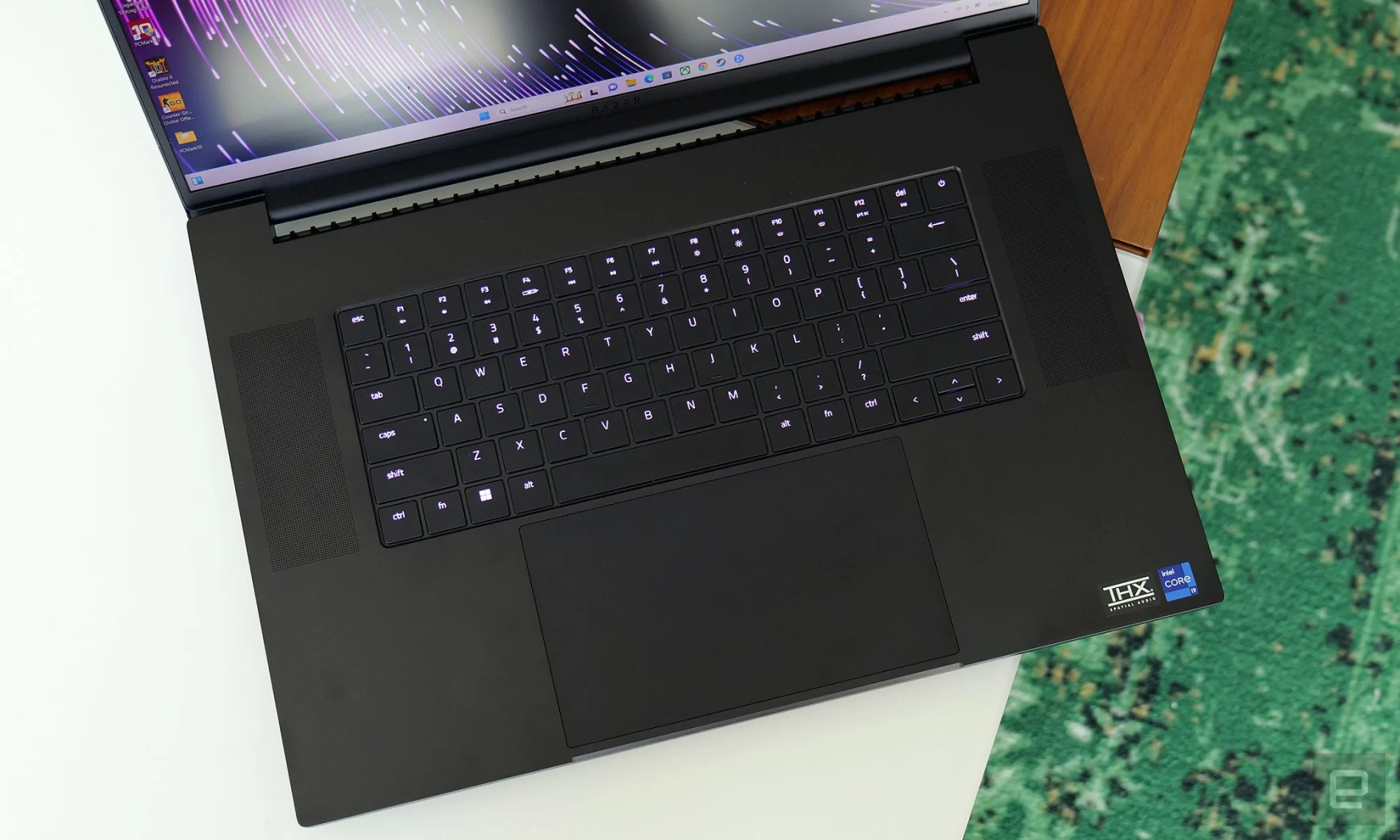
My one gripe with the Blade 18 is the lack of additional display options. On the old Blade 17, Razer provided a choice between a 240Hz QHD panel or a 144Hz UHD screen, the latter of which would be great for content creators who want a mobile workstation for editing 4K videos. Plus, when you factor in that an SD card reader comes standard, transitioning from shooting footage to editing is as simple as yanking a card out of your camera and slamming it in the Blade. And unlike the Blade 15, there’s no option for an OLED panel either. Now it’s quite possible that Razer is saving some of these upgrades for a forthcoming Studio version of the Blade 18 designed expressly for content creators, but that’s not much of a consolation to people looking for a new machine today.
Performance
A base Blade 19 definitely isn't a slouch with an Intel Core i9-13950HX chip and an RTX 4060 GPU. But once again, it's really the value proposition I'm questioning. That's because if you do want a laptop with big performance but in a slightly smaller package, ASUS’ Zephryous M16 can be configured with an i9 CPU and an RTX 4090 for $1,000 less than the Razer Blade 18, while the base version of the M16 features an RTX 4070 GPU starting at just $1,950.
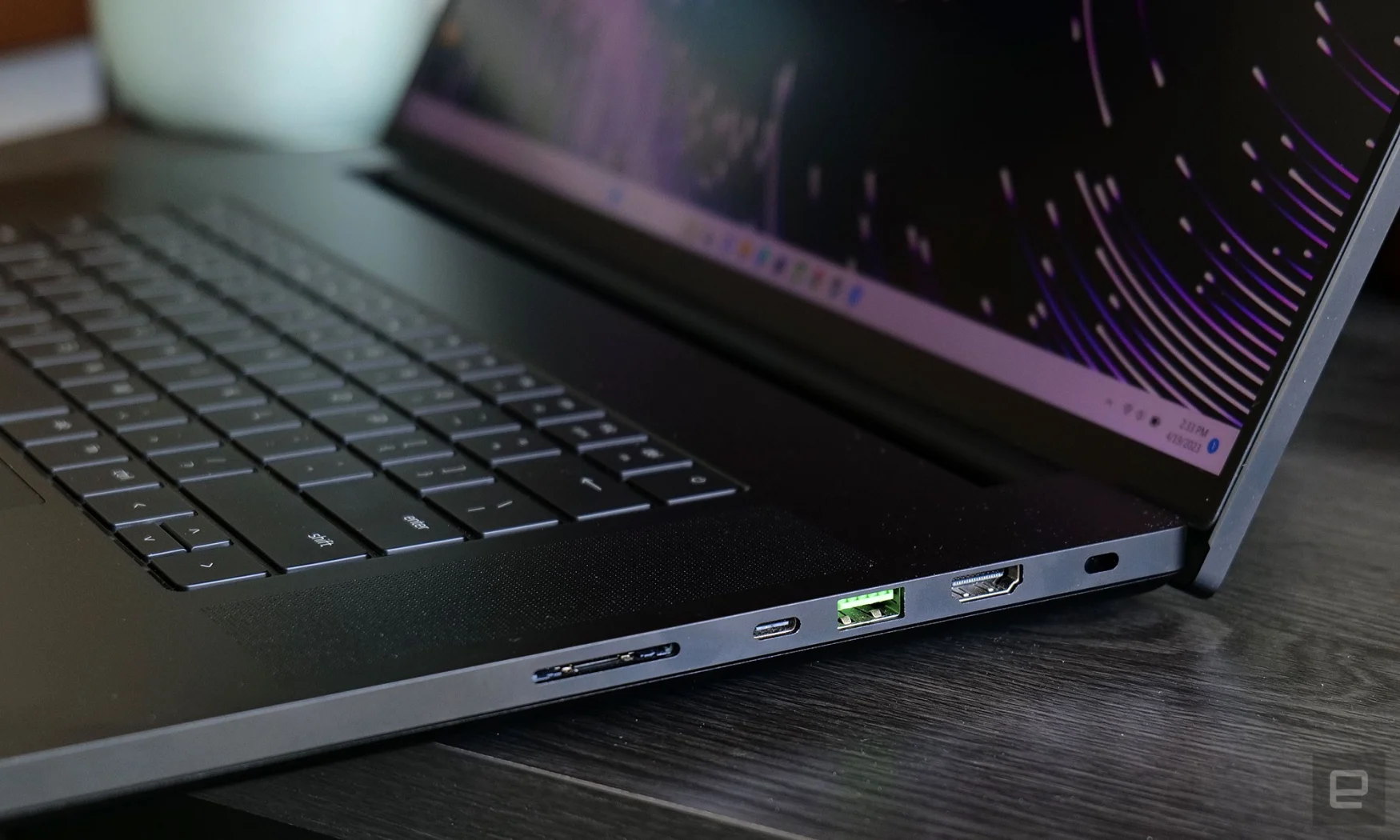
The one small issue is that if you're pairing an RTX 4060 with a 240Hz display, you can't really take full advantage of that fast refresh rate unless you're playing lower-spec esports games like CS:GO or League of Legends. For example, in Cyberpunk 2077, the Blade 18 posted an average frame rate of just 62 fps at 1920 x 1080 on Ultra. And when I tweaked the game’s settings to try to get the best out of that 240Hz display, the Razer only managed 122 fps with high textures and NVIDIA’s DLSS set to Ultra Performance mode. That said, even with the base model, there isn't really any title the Blade 18 can't handle, so you can easily take your games on the road.
Battery Life
Speaking of traveling, while it would be nice to be able to just grab the laptop and go, leaving the Blade 18’s power adapter at home is basically never an option. On PCMark 10’s Modern Office battery test, it lasted just two hours and 57 minutes, which is a full hour and a half less than ASUS’ ROG Zephyrus M16. And while it shouldn’t be a big surprise, if you’re playing games without being plugged into the wall, you can expect runtimes of two hours or less.
Wrap-up
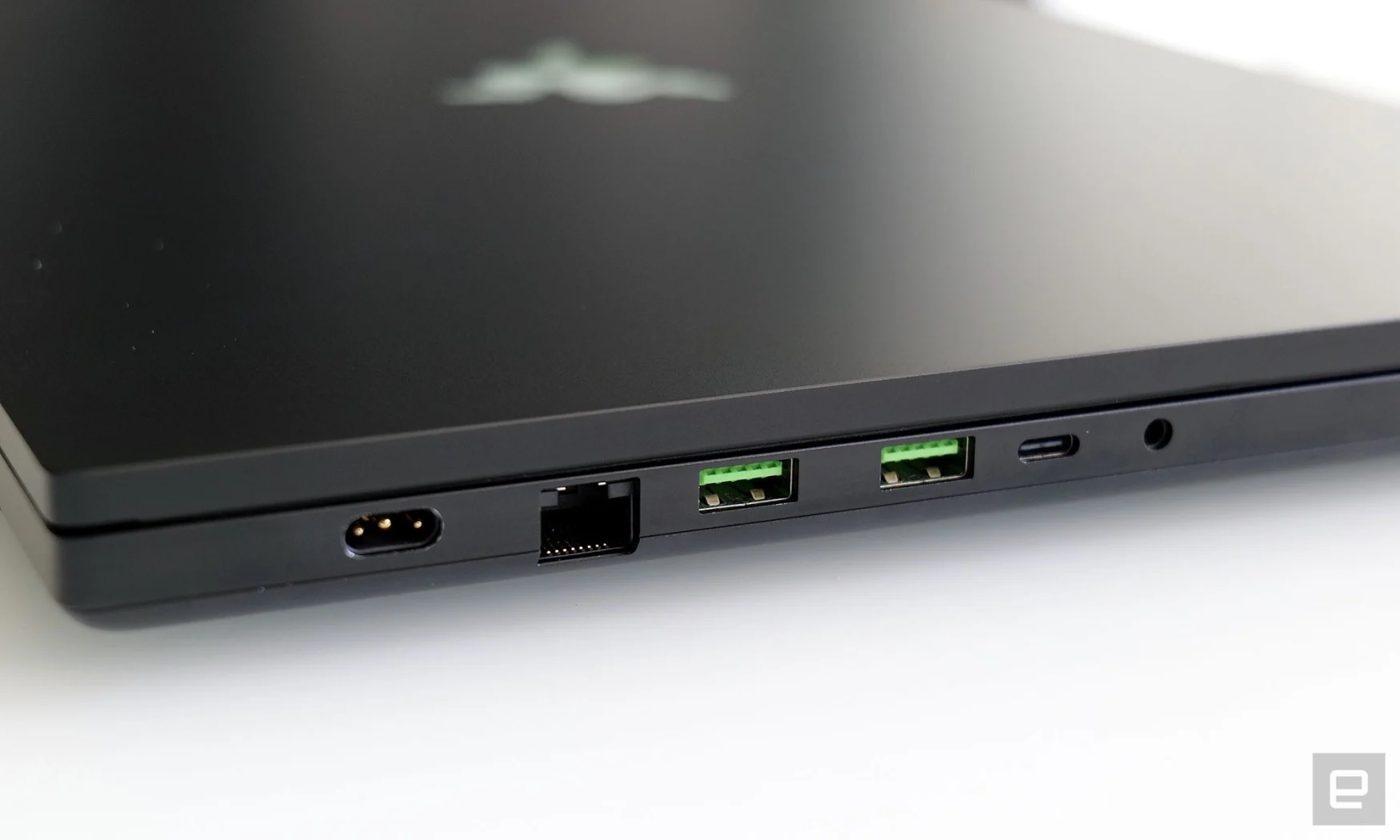
Ok, so back to my original question: Who is this thing really for? If you’re coming from a smaller system, moving to the Razer Blade 18 is almost like that episode of Seinfeld where Jerry nearly blunders his way into a menage a trois before backing out. Living with a laptop this big isn’t merely upgrading your machine. You have to change the way you travel, you need to buy more expensive peripherals that won’t look shabby next to your fancy laptop, and you’ll probably want to get some rich friends who don’t mind sending a driver to pick you up when you want to have a LAN session. It’s not just a more powerful way to game, it’s a whole new lifestyle choice.
Alternatively, if you like playing games and making videos, the Blade 18 certainly has the size and the performance to do both well, though its screen isn’t ideal for content creation. Honestly, the main use case for the Blade 18 is if you’re on the road a lot or if you’re someone like a game developer and you want a portable workstation that you can lug around to show off your upcoming title. Back in the day, that honor often went to systems like MSI’s huge 17-inch Dragon and Dominator laptops, which were even thicker and heavier, regularly weighing in at over 10 pounds. But as part of a new breed of desktop replacements, the Blade 18 offers support for the fastest laptop components out right now, but in a relatively less bulky, though still big chassis.
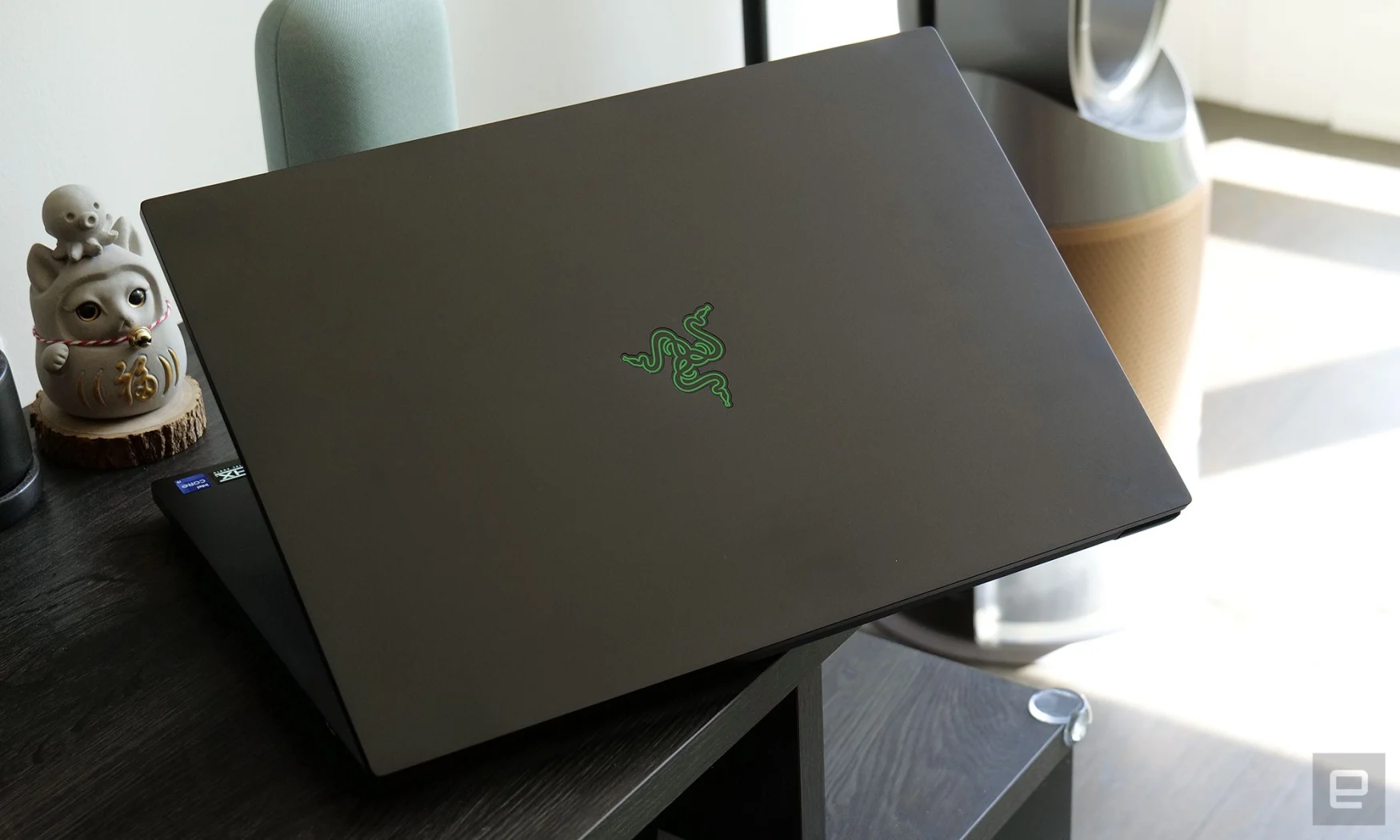
That said, the reality is that for most people, the Blade 18 doesn’t make a ton of sense. There are a number of other desktop replacements that aren’t quite as fancy for hundreds (or even thousands) less. And if you still want a machine with serious performance that’s easier to carry around, there are rivals like the Zephyrus M16 too. Ok, so what’s left? Luxury and prestige, because if you have a sky-high budget and want a super premium gaming laptop, there isn't much that can top a fully loaded Blade 18. But for everyone else thinking about getting in on the ground level with a base model, your money would go a lot further elsewhere.

